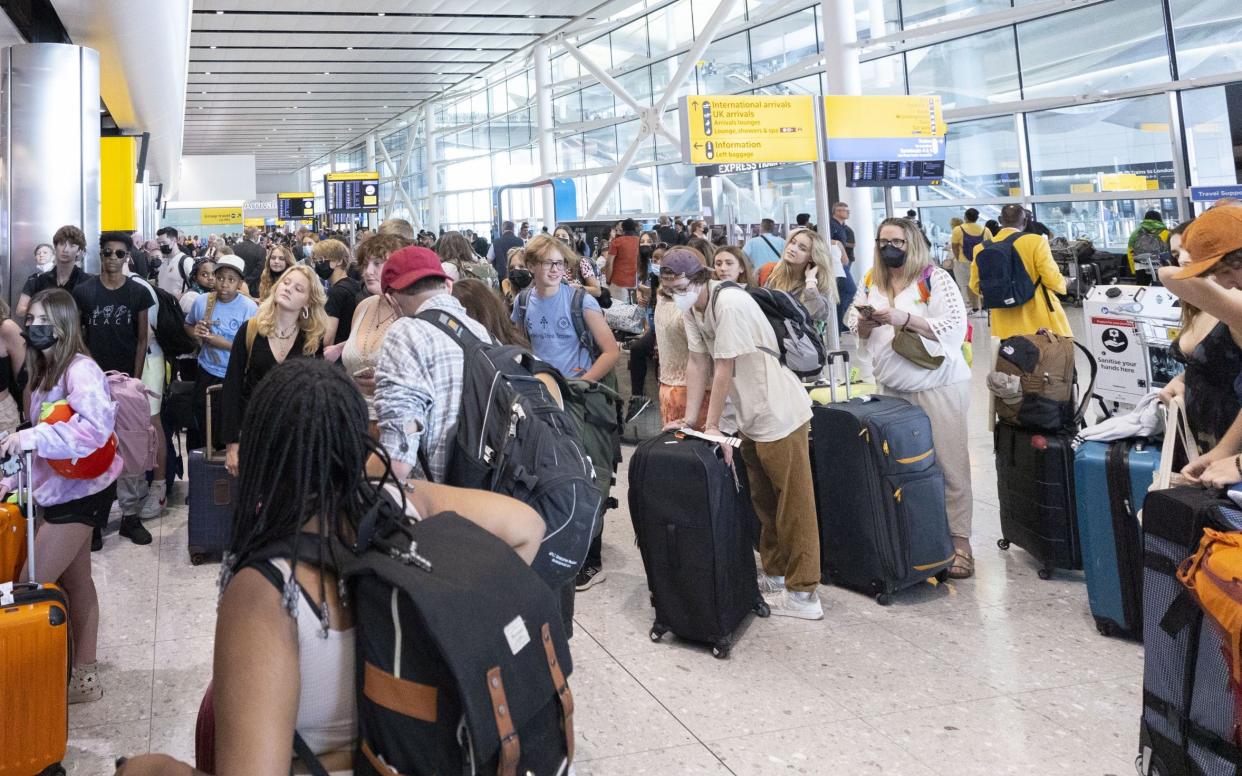The great British airport meltdown is in danger of becoming the norm

The images have become worryingly familiar. A businessman at Heathrow using his laptop case as a pillow. Flushed parents at Stansted, orbited by overtired infants, wondering why they chose Crete instead of Cornwall.
The UK’s latest airport meltdown was caused by an air traffic control glitch, affecting 2,000 flights and leaving hundreds of thousands of passengers delayed or stranded.
Willie Walsh, the former British Airways boss and director general of the International Air Transport Association, pointed the finger at the UK’s National Air Traffic Services (Nats): “Nats has crucial questions to answer about their responsibility for this fiasco.”
The truth is, these kinds of outages are rare in the UK. We last saw one on this scale in 2013, when an IT failure left hundreds of flights unable to land in London.
And we are not alone in experiencing such hiccups. On January 11, the US Federal Aviation Administration paused all domestic departures for 90 minutes because of an outage. Meanwhile, French air traffic control workers seem to down tools for fun.
The frustration for British holidaymakers is that air-traffic control is just one in a line of dominoes propping up our airports. Flick just one and the network topples. And these events seem to occur more now than ever.
The problems come in all shapes and sizes. In May, Gatwick suspended inbound flights for an hour after reports of a drone near the airfield. Problematic, although not nearly as catastrophic as in 2018, when 1,000 flights were cancelled or diverted over a three-day period owing to a number of alleged drone sightings.
During the late-May half term, Border Force e-gates failed at all UK airports, causing queues and delays lasting several hours. The glitch meant that all passports had to be checked manually, a process that British airports are no longer prepared for. One passenger wrote on Twitter: “The Europeans in the queue were laughing at us.”
The e-gate failure came around the same time that BA cancelled more than 175 flights because of another IT failure, this time affecting its check-in systems. The flag carrier has been plagued by technological issues in recent years, which persisted even after Sean Doyle, its chairman, wrote a letter to frequent flyers in 2022 promising “A Better British Airways”.
As the summer arrived, the threat of strike action loomed. On July 14, Unite announced that a thousand workers at Gatwick would strike for eight days through July and August, over a dispute concerning pay. In the end, the strike was called off, but passengers still bore the brunt after easyJet pre-emptively cancelled more than 1,700 flights.

Holidaymakers are a resilient bunch. Just two years ago, international travel became a logistical nightmare, involving costly nose twizzles and threats of hotel quarantine, but we still flew overseas. Now the pandemic has passed, we are travelling more than ever before. But our patience isn’t bottomless.
“The reports of last-minute cancellations and major delays will deter many families from travelling, particularly those with young children,” said Tim Hentschel, the chief executive of HotelPlanner.com.
“Being stuck in a busy airport lounge without any clear indication of when or if a flight will take off will prove too daunting for some.”
The fact that passengers will not be able to claim compensation after this latest incident, which was out of the control of airlines, will certainly rub salt in the wound.
For a country that houses the world’s second busiest airport for international traffic (Heathrow, pipped by Dubai), with a dedicated globetrotting population taking on average 1.3 overseas holidays per year, we deserve better than cold airport floors and luggage for pillows.
If airports and airlines don’t buck up their ideas, plenty of passengers will happily settle for a guaranteed spot on the A30 next summer, rather than a precarious seat on an A320.


